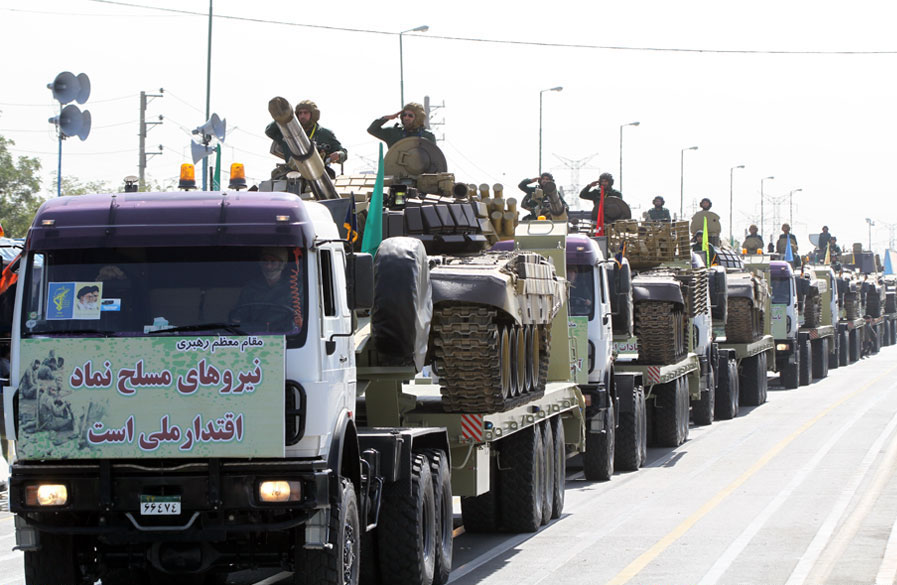Observations on Iran’s Plot to Kill John Bolton
The failed assassinaton plot against the former U.S. national security adviser has demonstrated the need for plans to deter future attempts on the lives of senior officials while avoiding a spiral of retaliation with Iran.

Published by The Lawfare Institute
in Cooperation With

Today the U.S. Department of Justice released a criminal complaint against Shahram Poursafi, a member of Iran’s Islamic Revolutionary Guard Corps (IRGC) Qods Force, alleging that he attempted to orchestrate the murder of former U.S. National Security Adviser John Bolton, because of Bolton’s involvement in the January 2020 killing of Qods Force commander and terrorism mastermind Qasem Soleimani. The plot, despite failing, is disturbing, and its implications deserve careful consideration by the Biden administration.
Let’s start with the good news. Based on what the Justice Department has provided so far, this suspect’s, and perhaps the IRGC’s, ability to conduct operations in the United States appeared limited. Shortly after Poursafi began his effort to recruit someone to kill Bolton, the United States introduced a confidential human source into the equation, suggesting the U.S. government was tracking the plot at a relatively early stage. The assistance Poursafi provided to the would-be assassin (a map application with Bolton’s work address and some basic advice for communicating in code) was minimal—it’s not like Poursafi was directing an entrenched logistics and operations network on U.S. soil. Poursafi’s reluctance to pay in advance also suggests that the IRGC recognized there was a good chance they were being scammed and were otherwise cautious before investing too much in the plot.
Now for the bad—or at least troubling—news. It is possible, of course, that Iran has more extensive capabilities for acting in the United States that it simply chose to reserve for another contingency, such as a response to U.S. military action against Iran’s nuclear facilities. Iran’s capabilities, and that of its close ally the Lebanese Hezbollah, are far greater outside the United States, and Iran has a network in numerous countries that it could use to strike U.S. facilities and personnel.
More troubling is that the legacy of the Soleimani killing endures. Hopes that Iran would settle for a quick, symbolic response such as firing rockets at U.S. forces in Iraq appear misplaced. This is not surprising. I, along with many Iran experts, worried that the killing of such a high-profile figure would lead to an enduring grievance in Iran. Over two years later, this remains true.
The foiled plot demonstrates the regime’s willingness to escalate, undermining hopes that Tehran is eager to prevent the security situation in the region from getting out of hand. Had the IRGC succeeded through better planning or just dumb luck, the killing of Bolton would have toppled what little stability the U.S.-Iran relationship has today. No U.S. president could stand by while a senior government official was assassinated, even if from the Iranian point of view this was simply a tit-for-tat response to a similar U.S. action. The Biden administration probably would have responded with some form of military strikes on the IRGC or otherwise felt compelled to make a clear, and violent, point that U.S. officials cannot be targeted. This strike, to be credible, would have to be extensive and hard-hitting, and that in turn could provoke another Iranian strike in response.
The IRGC’s willingness to escalate suggests that Iran is putting revenge ahead of other goals, including restoring the U.S.-Iran nuclear deal. Negotiations today seem stalled, but much of the plotting occurred when hopes for success were higher. Iran’s machinations suggest that, at best, it is bracketing the nuclear negotiations, continuing its support for terrorism, and contemplating an escalation of violence even as it negotiates. At worse, it suggests Iran largely sees negotiations as an empty exercise and is unwilling to sacrifice other goals to achieve success. If, against the odds, a deal is signed, there is little reason to expect that Iran would become more cautious in its use of terrorism.
Finally, the Biden administration should prepare plans for a response to a future assassination attempt, if it has not done so already. Bolton was one of several senior officials involved in the Soleimani killing, and other plots against him or others could be underway. Even as the United States tries to disrupt the plots and deter Iran from such dangerous escalations in the future, the Biden administration should be prepared to respond in case one of them succeeds. If that nightmare scenario happens, the administration would need to teach Iran the price of targeting U.S. figures is too high while avoiding a spiral of retaliation—a difficult balance even in the best of times.





